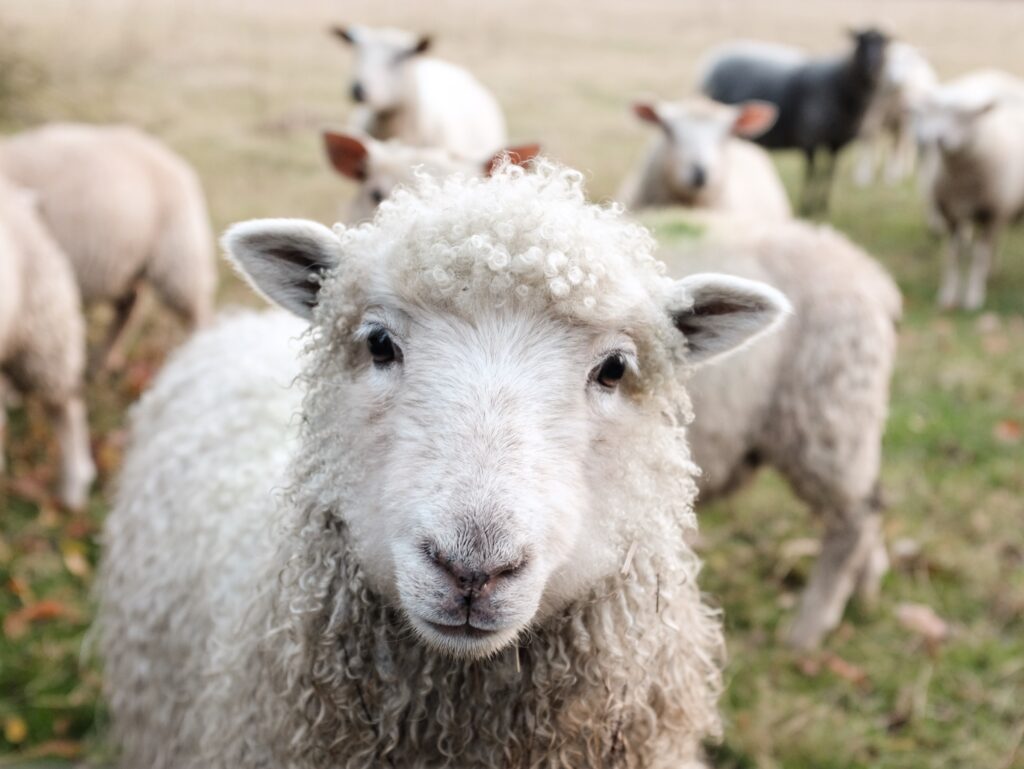If you’re a pet owner with a senior dog and you’ve been contemplating whether dog yoga, also known as doga, is a safe and beneficial practice for your furry friend, you’ve come to the right place. Doga, which combines the ancient tradition of yoga with the companionship of dogs, has gained popularity in recent years. Created by yoga teacher Suzi Teitelman, doga aims to incorporate pets into the serene world of yoga. This practice involves training your dog to stay close to you during your yoga sessions. The benefits of doga are numerous, including strengthening the bond with your canine companion, increasing physical activity for both you and your pup, promoting relaxation, and providing opportunities to meet like-minded individuals. So, if you’re curious about whether doga is suitable for your senior dog, continue reading as we explore real-life experiences and insights from forums to help you make an informed decision.
Benefits of Doga for Senior Dogs

Bonding with your dog
Doga, or dog yoga, is a wonderful way to strengthen the bond with your senior dog. By involving your furry companion in your yoga practice, you create an opportunity for shared experiences and quality time together. The close physical contact and gentle movements in doga help to create a deep sense of connection between you and your dog. Through the practice of doga, you can develop a more intuitive understanding of your dog’s needs and strengthen the emotional bond between you both.
Increasing physical activity
As dogs age, their activity levels tend to decrease, which can lead to various health issues. Doga provides an enjoyable way to incorporate physical activity into your senior dog’s routine. The gentle stretching and movements in doga can help to improve your dog’s flexibility and joint mobility. Engaging in regular doga sessions can also help to maintain muscle tone and prevent age-related muscle weakness. By encouraging movement and exercise, doga can contribute to your senior dog’s overall health and well-being.
Promoting relaxation
Just like humans, senior dogs may experience age-related stress, anxiety, or restlessness. Doga can be an effective means of promoting relaxation and reducing stress in older dogs. The calming atmosphere of a doga class, combined with gentle massage and soothing music, creates a serene environment that encourages relaxation for both you and your dog. The intentional breathing exercises practiced in doga can help to regulate your dog’s heart rate, lower blood pressure, and promote a sense of overall tranquility.
Meeting new people
Participating in doga classes opens up opportunities for you and your senior dog to meet new people who share a love for dogs and yoga. These classes often attract a diverse group of individuals, creating a welcoming community for both humans and dogs alike. Socializing your senior dog with other dogs and meeting like-minded dog owners can be a valuable aspect of their overall well-being. Building connections and fostering a sense of community through doga can have positive effects on your senior dog’s mental and emotional health.
Considerations for Senior Dogs
Health conditions
Before engaging in any physical activity, it is important to consider your senior dog’s health condition. Certain health issues, such as arthritis, respiratory problems, or heart conditions, may require special precautions or modifications when practicing doga. It is advisable to consult with your veterinarian to ensure that your dog is physically capable of participating in doga classes or virtual sessions. Your veterinarian can provide guidance on any potential risks and advise you on the most suitable exercises for your senior dog’s specific condition.
Mobility issues
As dogs age, they may develop mobility issues, such as joint stiffness or difficulty standing and walking. When practicing doga with a senior dog, it is crucial to consider their mobility limitations. Opting for poses and movements that are gentle, low-impact, and easy for your dog to perform can help prevent unnecessary strain or discomfort. Additionally, providing supportive props, such as blankets or pillows, can aid in stabilizing your senior dog during certain poses. Adjusting the intensity and duration of the practice according to your dog’s mobility can ensure a safe and enjoyable experience.
Appropriate poses and modifications
Not all yoga poses are suitable for dogs, especially senior dogs. It is essential to choose poses that are safe and appropriate for your senior dog’s age and physical condition. Poses that involve excessive stretching or joint manipulation should be avoided to prevent injuries. Instead, focus on poses that gently stretch and relax the muscles, promote balance, and improve flexibility. Additionally, modifications can be made to accommodate your senior dog’s specific needs. For example, using a chair for support or practicing seated poses instead of standing poses can make the practice more accessible for your dog.
Start with gentle movements
When introducing your senior dog to doga, it is recommended to start with gentle movements and gradually increase the intensity and duration of the practice. This allows your dog to become comfortable with the new experience and avoids overwhelming them. Begin with simple stretching exercises and incorporate calming massage techniques to help your dog relax. As your senior dog becomes more accustomed to the practice, you can gradually introduce more advanced poses and movements. Patience and understanding are key when starting doga with a senior dog.

Monitoring your dog’s comfort
Throughout the doga practice, it is crucial to monitor your senior dog’s comfort level. Pay attention to any signs of stress, discomfort, or fatigue exhibited by your dog. These may include panting excessively, trembling, whining, or trying to escape from certain poses. If you notice any discomfort, gently modify or discontinue the pose to ensure your dog’s well-being. Always prioritize the safety and comfort of your senior dog during the practice of doga.
Doga Classes for Senior Dogs
Finding a reputable class
When looking for a doga class for your senior dog, it is important to find a reputable and experienced instructor. Seek recommendations from fellow dog owners or consult local dog training facilities or yoga studios. Ensure that the instructor has specific knowledge and experience in teaching doga to senior dogs. Before committing to a class, inquire about the class format, size, and any age or skill restrictions. A reputable class should prioritize the well-being of senior dogs and provide a safe and supportive environment for them to practice doga.
Class structure and pace
Doga classes for senior dogs should have a structured format that considers the unique needs of older dogs. The class should incorporate a warm-up session to prepare the dogs’ muscles for the practice and focus on gentle movements that promote flexibility and relaxation. The pace of the class should be unhurried, allowing enough time for each pose and transition to ensure the senior dogs can comfortably follow along. The instructor should provide clear instructions and modifications to accommodate the capabilities of the dogs, making the class accessible and enjoyable for all participants.
Qualified instructors
When attending doga classes with your senior dog, it is essential to have a qualified instructor who understands and respects the limitations and needs of older dogs. Look for instructors who have obtained relevant certifications in doga or have extensive experience working with senior dogs. A qualified instructor will possess the knowledge to modify poses and exercises to accommodate various senior dog conditions, ensuring a safe and effective practice. Don’t hesitate to ask about an instructor’s credentials and experience before enrolling in their class.

Socialization opportunities
One of the advantages of attending doga classes with your senior dog is the opportunity for socialization. Doga classes often attract dog lovers of all ages, providing a supportive community where owners and dogs can connect. Socializing your senior dog with other dogs in a controlled environment can help improve their social skills and reduce any anxiety or fear-related behavior. Additionally, interacting with other dog owners who share a passion for doga can lead to valuable friendships and a sense of camaraderie.
Virtual Doga Classes for Senior Dogs
Benefits and drawbacks of virtual classes
Virtual doga classes offer convenience and flexibility for senior dog owners who prefer to practice doga at home. Participating in virtual classes eliminates the need for travel and allows you to create a comfortable space for your senior dog. Additionally, virtual classes often offer pre-recorded sessions, allowing you to practice doga at your own pace. However, virtual classes may lack the physical support and personalized guidance that an in-person class can provide. It is important to carefully consider the benefits and drawbacks of virtual classes before choosing this option for your senior dog.
Choosing the right virtual class
When selecting a virtual doga class for your senior dog, it is crucial to choose a reputable and professional instructor or platform. Look for instructors who have experience and credentials in teaching virtual doga classes specifically designed for senior dogs. Read reviews or seek recommendations from other dog owners who have tried virtual classes. Consider the class format, duration, and whether the instructor offers modifications or adjustments for senior dogs. Doing thorough research and choosing the right virtual class can ensure a positive and beneficial experience for your senior dog.
Creating a safe and comfortable space
Before participating in a virtual doga class with your senior dog, it is essential to create a safe and comfortable space for the practice. Choose a quiet area in your home where your dog can relax and feel at ease. Clear any obstacles or furniture that could potentially cause accidents or distractions during the practice. Lay down a mat or blanket to provide your dog with a designated space for the practice. Ensure the room is well-ventilated and at a comfortable temperature for your senior dog. By creating a calm and inviting environment, you can enhance the benefits of virtual doga practice for your senior dog.
Forum Threads Discussing Doga for Senior Dogs
User experiences and opinions
Forum threads discussing doga for senior dogs often provide valuable insight into the experiences and opinions of dog owners who have tried this practice with their senior dogs. Reading through these threads can give you a better understanding of the benefits and challenges that other senior dog owners have encountered during their doga journey. You may find testimonials from dog owners who have witnessed positive changes in their senior dogs’ physical and mental well-being through regular participation in doga classes.
Success stories with senior dogs
Many forum threads highlight success stories involving senior dogs and their participation in doga. These stories showcase the potential benefits and improvements that doga can bring to the lives of older dogs. From increased mobility and flexibility to reduced anxiety or stiffness, these anecdotes provide encouraging evidence of how doga can positively impact the lives of senior dogs. Reading these success stories can inspire and motivate senior dog owners to explore doga as a beneficial practice for their own furry companions.
Challenges and limitations
In forum threads discussing doga for senior dogs, you may come across challenges and limitations that other dog owners have faced when practicing doga with their older dogs. These challenges can range from physical limitations of senior dogs to difficulty finding suitable classes or qualified instructors. By being aware of these challenges, you can better prepare and adjust your expectations when introducing doga to your own senior dog. It is important to remember that every dog is unique, and what works for one may not work for another.
Advice and tips from forum members
One of the great advantages of forum threads is the wealth of advice and tips shared by experienced dog owners. You may find helpful suggestions on how to modify poses for senior dogs, recommendations for supportive props, or techniques to make the doga experience more enjoyable for your senior dog. Taking the time to read through the advice and tips shared by forum members can provide you with valuable insights and assist you in achieving a successful doga practice for your senior dog.
Expert Opinions on Doga for Senior Dogs
Veterinarians’ perspective
Veterinarians often have valuable insights and recommendations regarding doga for senior dogs. Some veterinarians may advocate for the benefits of doga in maintaining a senior dog’s physical and mental well-being. They may offer advice on specific poses or movements that are safe and beneficial for senior dogs, as well as precautions to take based on individual health conditions. Veterinary professionals bring a scientific and medically informed perspective to the discussion of doga for senior dogs, ensuring the safety and welfare of your furry companion.
Yoga instructors’ advice
Many yoga instructors have embraced the concept of doga and incorporated it into their classes. Yoga instructors specializing in doga can provide guidance on poses and exercises that are appropriate and beneficial for senior dogs. They may offer modifications and adjustments to accommodate the unique needs of older dogs. Yoga instructors’ expertise can be a valuable resource when considering doga for your senior dog and seeking professional advice on how to safely and effectively engage in this practice together.
Specialists in dog behavior and training
Specialists in dog behavior and training can provide insights into how doga can positively impact a senior dog’s behavior and overall well-being. These specialists may consider the mental stimulation and engagement that doga offers and discuss how it can help mitigate common behavior issues in older dogs. They may also offer training tips and techniques to enhance the doga experience for your senior dog. Seeking advice from specialists in dog behavior and training can provide you with a well-rounded understanding of the benefits and potential challenges of doga for senior dogs.
In conclusion, doga can be a beneficial and enjoyable practice for senior dogs. The bonding experience, increased physical activity, relaxation, and socialization opportunities offered by doga can contribute to the overall well-being of older dogs. However, it is important to consider the individual health condition and mobility limitations of your senior dog, choose appropriate poses and modifications, start with gentle movements, and continuously monitor your dog’s comfort. Whether you opt for in-person doga classes or virtual sessions, finding a reputable instructor who understands the needs of senior dogs is essential. Through forum threads, you can gain valuable insights from other dog owners’ experiences, successes, challenges, and receive advice from experts such as veterinarians, yoga instructors, and specialists in dog behavior and training. With the right precautions, guidance, and care, doga can be a wonderful addition to your senior dog’s routine, promoting their physical, mental, and emotional well-being.
